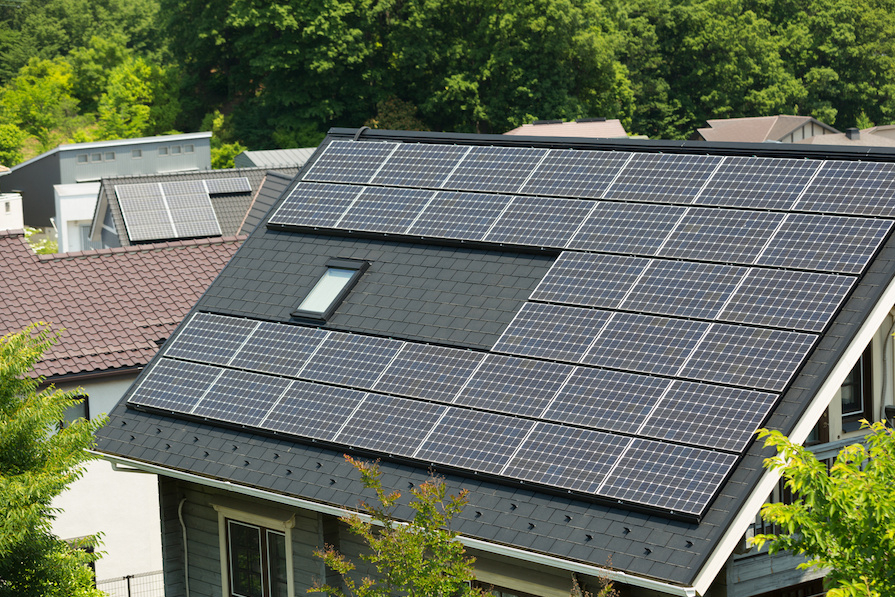In a world increasingly focused on sustainability and self-reliance, off grid solar systems have emerged as a practical and empowering energy solution. Whether you’re living remotely, traveling in an RV, or simply aiming to reduce dependence on the public grid, off grid solar panels can provide reliable, clean energy in 2025 and beyond.
In this article, we’ll break down the costs, installation process, and top off-grid solar products to help you make an informed decision.

What Is an Off Grid Solar System?
An off grid solar system is a complete solar power setup that works independently of the traditional utility grid. Unlike grid-tied systems, off-grid systems rely entirely on solar panels, battery storage, and inverters to supply electricity 24/7.
These systems are ideal for:
-
Remote cabins or rural homes without grid access
-
RV and van life setups
-
Boats and mobile offices
-
Emergency backup power systems
How Much Does an Off-Grid Solar System Cost in 2025?
The cost of an off-grid solar power system depends on several key factors:
1. Power Demand (Daily kWh Usage)
To determine system size, calculate your daily energy usage in kilowatt-hours (kWh). For example:
-
A tiny off-grid cabin: 1–2 kWh/day
-
A family RV: 3–5 kWh/day
-
A full-sized off-grid home: 10–30+ kWh/day
2. System Components & Pricing (Typical Range)
| Component | Typical Cost (2025) |
|---|---|
| Solar Panels | $0.5 – $1.0 per watt |
| MPPT Charge Controller | $150 – $500 |
| Inverter (Pure Sine Wave) | $300 – $1,500 |
| LiFePO4 Battery Bank | $800 – $4,000+ |
| Mounting & Wiring | $300 – $1,000 |
| Labor (if outsourced) | $500 – $2,000+ |
3. Example System Costs
-
Basic 1kW Kit (DIY cabin or RV): $1,500 – $3,000
-
Mid-sized 3kW System (van or small home): $5,000 – $8,000
-
Large 8–10kW System (full off-grid living): $12,000 – $25,000
Pro tip: While upfront costs may seem high, the long-term savings (zero electric bills) and energy independence often justify the investment.

How Off-Grid Solar Systems Work (Step-by-Step Process)
Step 1: Assess Your Energy Needs
List your daily power consumption for appliances, lighting, and tools. Multiply the wattage by hours used to get daily kWh requirements.
Step 2: Size the System
Use the formula:
(Daily kWh ÷ Sun Hours) × 1.3 (buffer) = Panel wattage needed
Example: 5 kWh/day ÷ 5 sun hours × 1.3 ≈ 1,300W solar panel system
Step 3: Select Components
-
Panels: Choose durable, high-efficiency off grid solar panels (see recommendations below)
-
Charge Controller: MPPT preferred for efficiency
-
Battery: Opt for lithium iron phosphate (LiFePO4) for longevity
-
Inverter: Pure sine wave ensures safe appliance operation
Step 4: System Design & Wiring
Create a system diagram showing how each component connects. Pay attention to wire sizing, fuse protection, and voltage compatibility.
Step 5: Install & Test
Mount panels securely. Connect controller, battery, and inverter. Test each part under load before full deployment.
Best Off-Grid Solar Products in 2025
Choosing reliable and efficient components is key to success. Here are top-performing off grid solar panels and systems in 2025:
1. Sungold HP Series 400W Portable Off-Grid Kit
-
Use Case: Camping, emergency backup, mobile offices
-
Features:
-
Foldable + portable design
-
Built-in junction box with USB/Type-C
-
Plug-and-play for quick deployment
-
-
Why It Stands Out: Fast setup + emergency power delivery in critical situations
2. Sungold TF Series 100W Flexible Panel
-
Use Case: RVs, curved roofs, lightweight systems
-
Features:
-
Ultra-thin, bendable up to 30°
-
Only 2.1kg weight
-
Weather-resistant and durable
-
-
Why It Stands Out: Ideal for mobility, space-limited installs
3. Sungold PA219 Lightweight Panel
-
Use Case: Rooftops, long-term off-grid homes
-
Features:
-
High strength, ultra-thin glass alternative
-
22.6% efficiency
-
Zero hot spot technology
-
-
Why It Stands Out: Balances strength, weight, and performance

4. LiFePO4 Battery Pack (24V/100Ah)
-
Long cycle life: 3000–6000 cycles
-
Supports high load appliances
-
Safe, thermal-stable, and low self-discharge
Off Grid Solar System Tips for 2025
-
Plan for winter sun hours: Always size your system with the lowest seasonal sunlight in mind.
-
Modularity is key: Start with essentials, then expand as needs grow.
-
Don’t overlook ventilation: Batteries and inverters need airflow.
-
Use quality cables and fuses: Poor wiring leads to power loss and hazards.
-
Consider hybrid options: Some off-grid systems integrate a backup generator or wind turbine.
Conclusion: Off-Grid in 2025 = Freedom, Reliability, and ROI
With rising energy costs, power outages, and sustainability goals, off grid solar panels and systems are more relevant than ever in 2025. While setup involves a significant investment and planning, the result is true energy independence.
Whether you’re looking for a minimalist RV setup or a full off-grid home solution, there’s a reliable system waiting to power your journey. With Sungold’s best-in-class panels and portable kits, getting off the grid has never been more practical.










